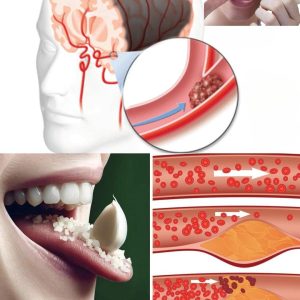
Kidney inflammation, also known as nephritis, is a serious condition that can result in the accumulation of toxins in your bloodstream — and if left untreated, may lead to chronic kidney failure. That’s why recognizing the causes, spotting early signs, and taking the right actions is key to protecting your health.
What Triggers Kidney Inflammation?
Several different factors can lead to kidney inflammation:
- Infections – Bacterial, viral, or even parasitic infections can cause the kidneys to become inflamed.
- Autoimmune disorders – Conditions like lupus or rheumatoid arthritis can mistakenly attack kidney tissue.
- Medications – Some drugs, including certain painkillers and antibiotics, may negatively impact kidney health.
- Glomerular diseases – These affect the kidney’s filtering units, the glomeruli, and disrupt normal function.
- Other rare causes – Kidney blockages, cancer, or diseases like sickle cell anemia may also be to blame.
Symptoms You Shouldn’t Ignore
The symptoms of nephritis can vary depending on how advanced the condition is, but common warning signs include:
- Urine that appears bloody or pinkish
- Swelling in your face, legs, or ankles
- Extreme tiredness and lack of energy
- Nausea, vomiting, and loss of appetite
- Pain in the lower back or sides
- Reduced urine output
How It’s Treated
Treatment depends on what’s causing the inflammation:
- Medication – Used to treat infections, manage inflammation, and control blood pressure.
- Dialysis – Helps remove waste when your kidneys are no longer able to do the job.
- Kidney transplant – Recommended in severe or end-stage cases where kidney function is lost.
5 Practical Steps to Support Kidney Health

- Watch Oxalates:
Limit foods like spinach and walnuts that contain oxalates, which can form kidney stones. Balance by eating calcium-rich foods and cooking veggies to reduce oxalate levels. - Boost Fiber Intake:
Soluble fiber, especially acacia fiber, traps toxins in the gut and helps flush them out, easing kidney strain. - Increase Vitamin D:
Low vitamin D is common with kidney issues. Eat fatty fish, egg yolks, mushrooms, and get sunlight to improve levels. - Address Diabetes:
Type 2 diabetes is a major cause of kidney disease. Apple cider vinegar (1–2 tbsp in water before meals) may help regulate blood sugar and insulin sensitivity. - Adjust Your Diet:
Reduce salt, moderate protein, limit high-potassium foods if needed, avoid refined carbs, limit alcohol, and stay hydrated following medical advice.
In Summary:
Kidney inflammation is serious — but by recognizing the symptoms early and following these health-conscious steps, you can help prevent complications like dialysis and safeguard your kidneys for the long haul.




